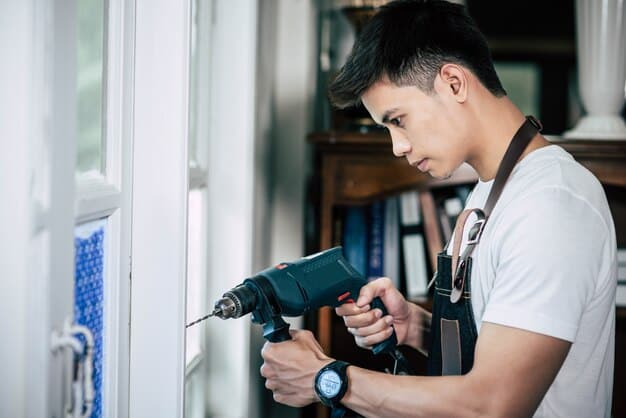Installing a garage door is a significant task involving heavy lifting and electrical work, usually best left to professionals. However, if you’re confident and have the time, you can attempt some aspects of the installation yourself.
Before starting, it’s important to determine the right type of garage door for your home and select a style that complements your house’s architecture. Additionally, consider whether you want to incorporate insulation or other upgrades.
Installing a new garage door is a worthwhile investment that can enhance your property value and improve safety and security. Although the installation costs can be high, the added value and peace of mind make it worth the expense.
To save money on your new garage door, take the time to shop around and compare prices. Look for deals that may include a free opener or other extras that you wouldn’t typically receive when purchasing a new door.
Customizing your garage door is an option worth considering. Choose colors and other features that suit your preferences. If you desire a specific aesthetic, textured panels or decorative touches can be added.
Garage doors are available in various styles and materials, such as wood and steel. Consulting with a professional installer will help you select the most suitable materials for your home.
Before beginning the installation, accurately measure your garage door opening to ensure the panels fit properly. Order panels that are approximately 1/4 inch (6.4 mm) smaller than the door opening.
Ensure that the door panels you purchase come with all the necessary hardware, including hinges and rollers. This will facilitate a faster installation process and guarantee proper functioning of the garage door.
Use a tape measure to determine the height and width of your garage opening, ensuring it is neither too low nor too high. If the opening is too low, additional materials may need to be added to accommodate the track brackets.
Set up the tracks for each door, adjusting them to prevent rubbing against one another. Once all the tracks are in place, securely tighten the lag screws using a ratchet wrench.
If you’re converting a single-car garage door to a double, ensure that the bottom tracks are not too wide, as they may interfere with the door’s movement when closing. Install the upper tracks to match the lower ones.
Attach a second pulley wheel to the horizontal track, near the curved section, with the wheel facing inward. Add an eye bolt to the rear track hanger, positioning the hook to face the garage door.
Next, thread the looped end of a door lifting cable through the pulley at the end of the extension spring, and continue running it toward the garage door, feeding it over the stationary pulley wheel. Repeat this process until the entire door is lifted halfway up.
Note: It is important to exercise caution and follow safety guidelines when undertaking any DIY project, especially one involving heavy machinery and electrical components. If unsure, it is always advisable to seek professional assistance.


